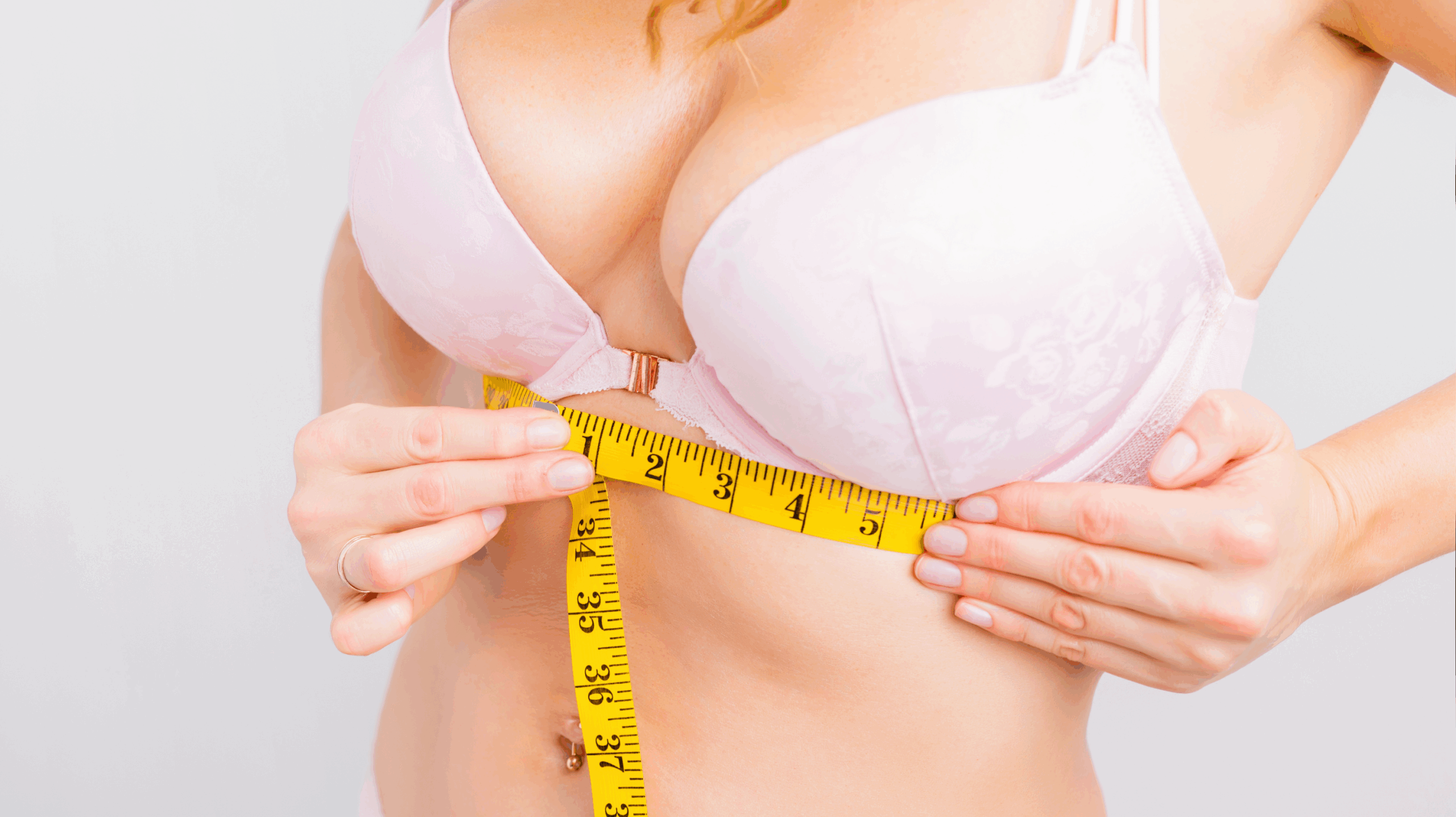
Breast Tenderness in Menopause – Causes & Solutions
Breast tenderness in menopause is no joke! With some women comparing the sensation to sore boobs during pregnancy, it’s no wonder why it’s one of the more common complaints when it comes to perimenopause and menopause.
But why does breast tenderness in menopause happen in the first place? And, more importantly, what can you do about it?
Let’s take a look beyond the bra and discover how to manage sore boobs in perimenopause and menopause.
What is menopause?
First up, let’s revisit the basics and understand menopause as a whole.
When do you reach menopause? It’s not as complicated as it may seem; though the experience of menopause itself isn’t nearly as black and white.
You have officially reached menopause once you have had 12 consecutive months in a row without any vaginal bleeding. This includes spotting.
That’s why it’s so important to track your periods (or lack thereof). Many perimenopausal women may find that they could have 11 months without any bleeding, but the second they start spotting, the timer resets and they have to wait for another 12 months.
Perimenopause vs menopause
So, what’s the difference between perimenopause and menopause?
Put simply, you are perimenopausal before you are menopausal. You’ll experience the standard symptoms you associate with menopause, but you’ve had some form of period, even if that includes spotting.
While perimenopausal menstrual cycles can look a lot different to what you’re used to, you’re not officially menopausal until you’ve had a year of no vaginal bleeding of any kind.
Other common symptoms of menopause (and perimenopause)
While this article focuses on breast tenderness in menopause, there are other symptoms of perimenopause and menopause that can indicate where you are on your unique journey.
These include (but are not limited to):
- Hot flashes and night sweats
- Sleep disruption, insomnia and fatigue
- Bloating and tummy ache
- Joint pain
- Hair loss and more facial hair
- Vaginal dryness, itchy vulva and changes to libido
- Brain fog, memory lapses and difficulty concentrating
- Weight gain
- Mood swings and sudden rage
Breast tenderness in menopause – is it normal?
If you’re struggling with breast tenderness in menopause, you’re not alone.
Breast pain is tied to a huge number of conditions and also signals fluctuations in your hormone levels.
You likely associate breast tenderness with pregnancy or a sign that you’re about to come on your period. This is called mastalgia, which essentially means breast pain.
Breast pain can be cyclical and in line with your menstrual cycle. However, it can also be totally non-cyclical. In fact, approximately 70% of women experience sore breasts at some point in their lives.
Suffering from breast tenderness in menopause isn’t unusual. So, if it’s something you’re struggling with, know that it’s a symptom that many others are suffering with, too.
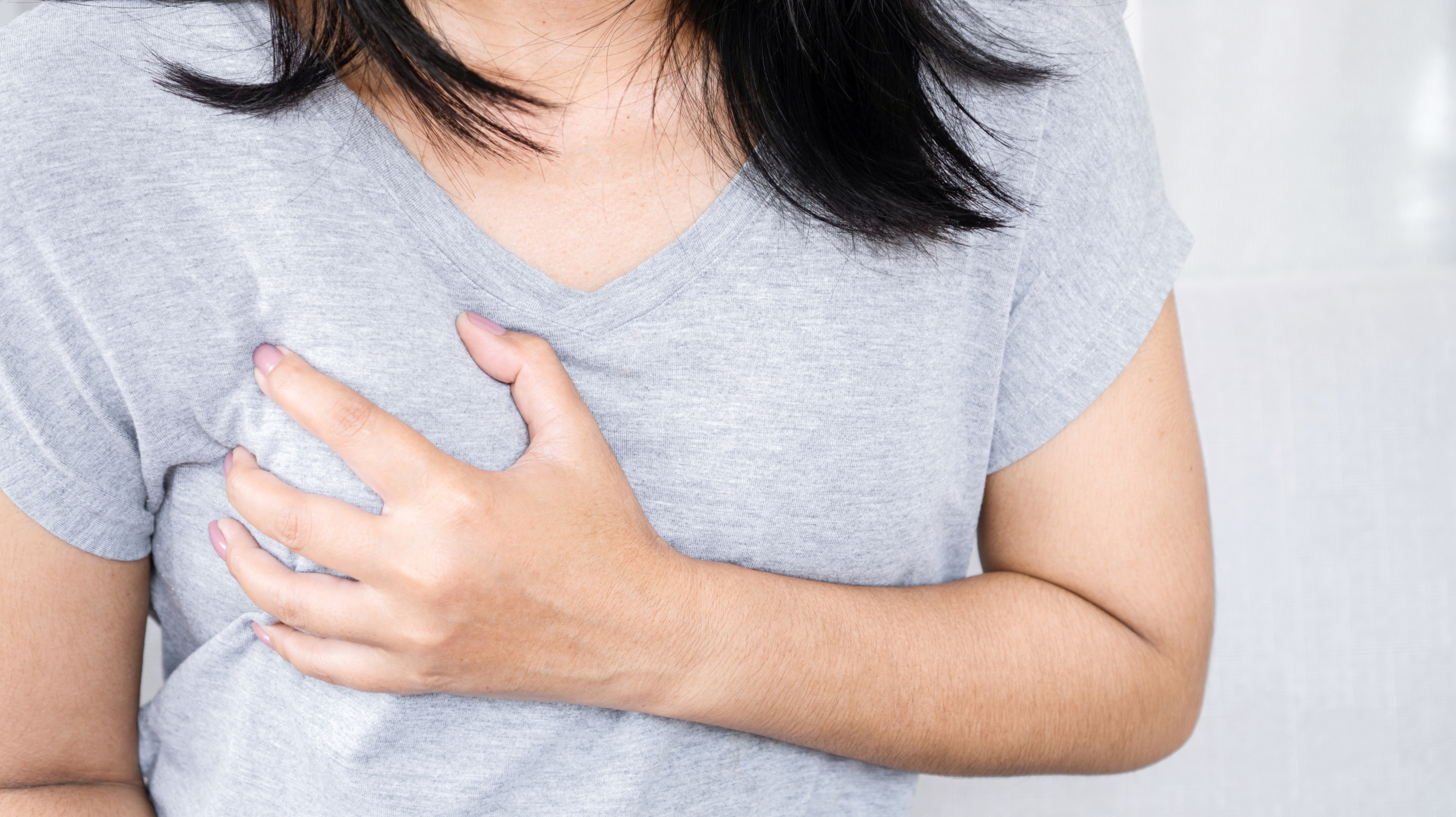
Causes of breast tenderness in menopause
For the most part, you can thank your hormone changes for breast pain; specifically the adjustments to your oestrogen and progesterone levels.
As you transition into perimenopause, your oestrogen and progesterone levels will spike and fall. There’s often no rhyme or reason to the ups and downs, making it tricky to predict when your symptoms will crop up.
These fluctuations can impact breast tissue, which can lead to breast tenderness in menopause.
The good news, though, is that once you’ve reached menopause and your body stops producing oestrogen, breast pain tends to subside.
What else could be causing breast tenderness in menopause?
It’s really important that you loop your doctor in if you’re struggling with breast tenderness in menopause. Breast pain can be side effects of certain medications, such as diuretics and methyldopa.
Not to mention, breast tenderness can also signal cysts, infections, weight changes or benign tumours.
A poorly fitted bra, too, can trigger breast pain.
It’s always better to be safe than sorry, so if you are experiencing breast pain, make sure you see your doctor.
What does breast tenderness in menopause feel like?
While we tend to associate breast soreness with pregnancy and periods, breast tenderness in menopause and perimenopause feels different.
While cyclical pain that you’ve felt based on your menstrual cycle usually affects both breasts and feels more like a dull ache, this isn’t always accurate for menopause and perimenopause related breast pain.
During perimenopause and menopause, you may feel a burning in one or both breasts, or general tenderness. Everyone is different. No pair of boobs are exactly the same. Breast tenderness in menopause can feel like burning, stinging, throbbing or a sharp stabbing feeling.
Breast tenderness in menopause – what to do
If you’re struggling with breast tenderness in menopause and perimenopause, there are definitely things you can do to ease the soreness.
Stop smoking
If you needed another reason to stop smoking, this is it! You’ll find that breast pain eases once you have quit smoking. Plus, you’ll be reducing your risk of cancer. So, if you’ve been thinking about it for a while, take this as your sign to take the plunge and make the change.
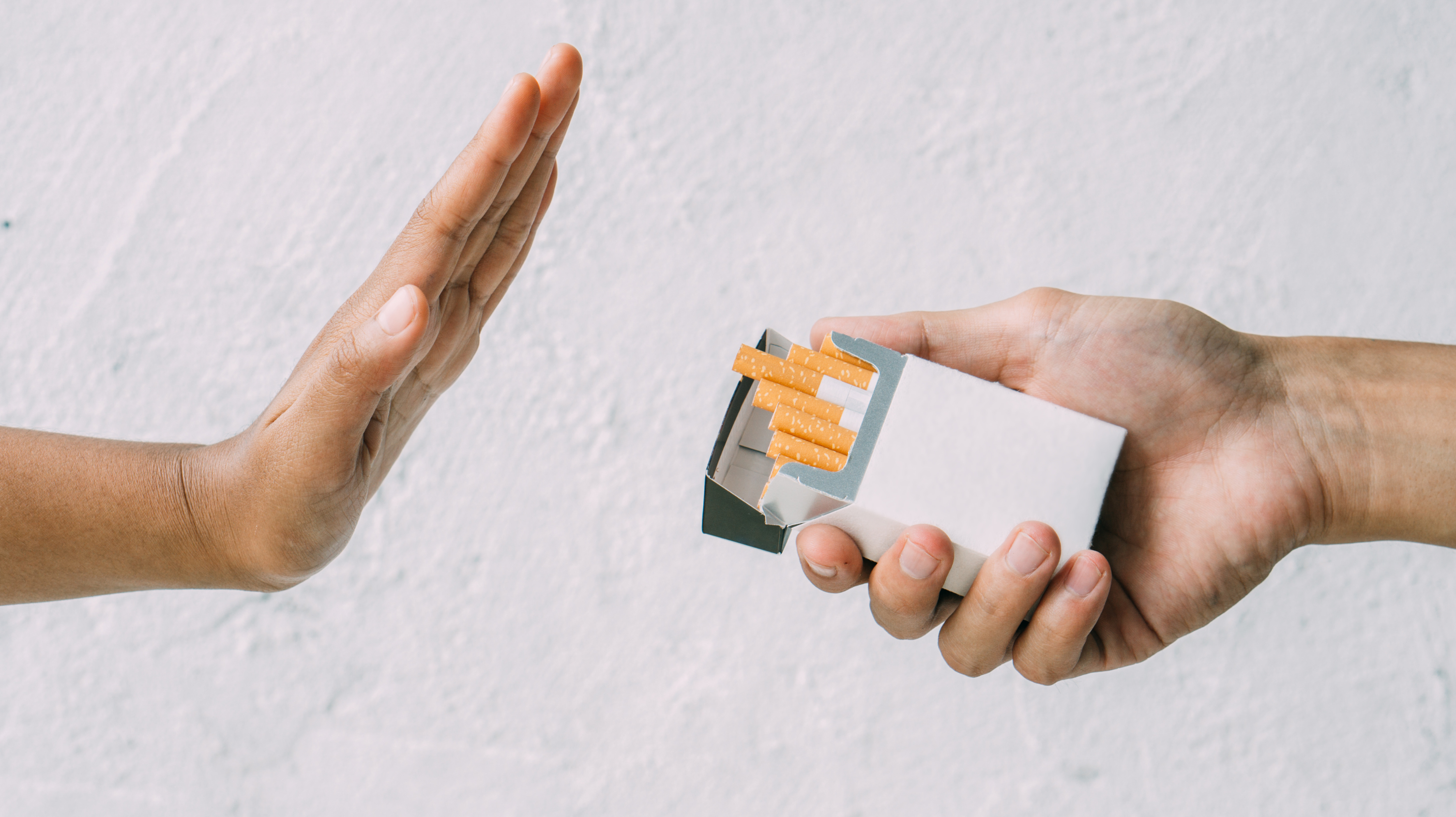
Quit (or cut down on) caffeine
Caffeine can trigger a wide range of perimenopause symptoms, including hot flashes, night sweats, weight gain and mental health problems. This, too, includes breast tenderness in menopause. Reducing, or cutting out caffeine altogether, will help relieve some of the soreness in your breasts.
Rather than your daily coffee, try switching up to green tea. This will help with weight loss and hot flashes, too.
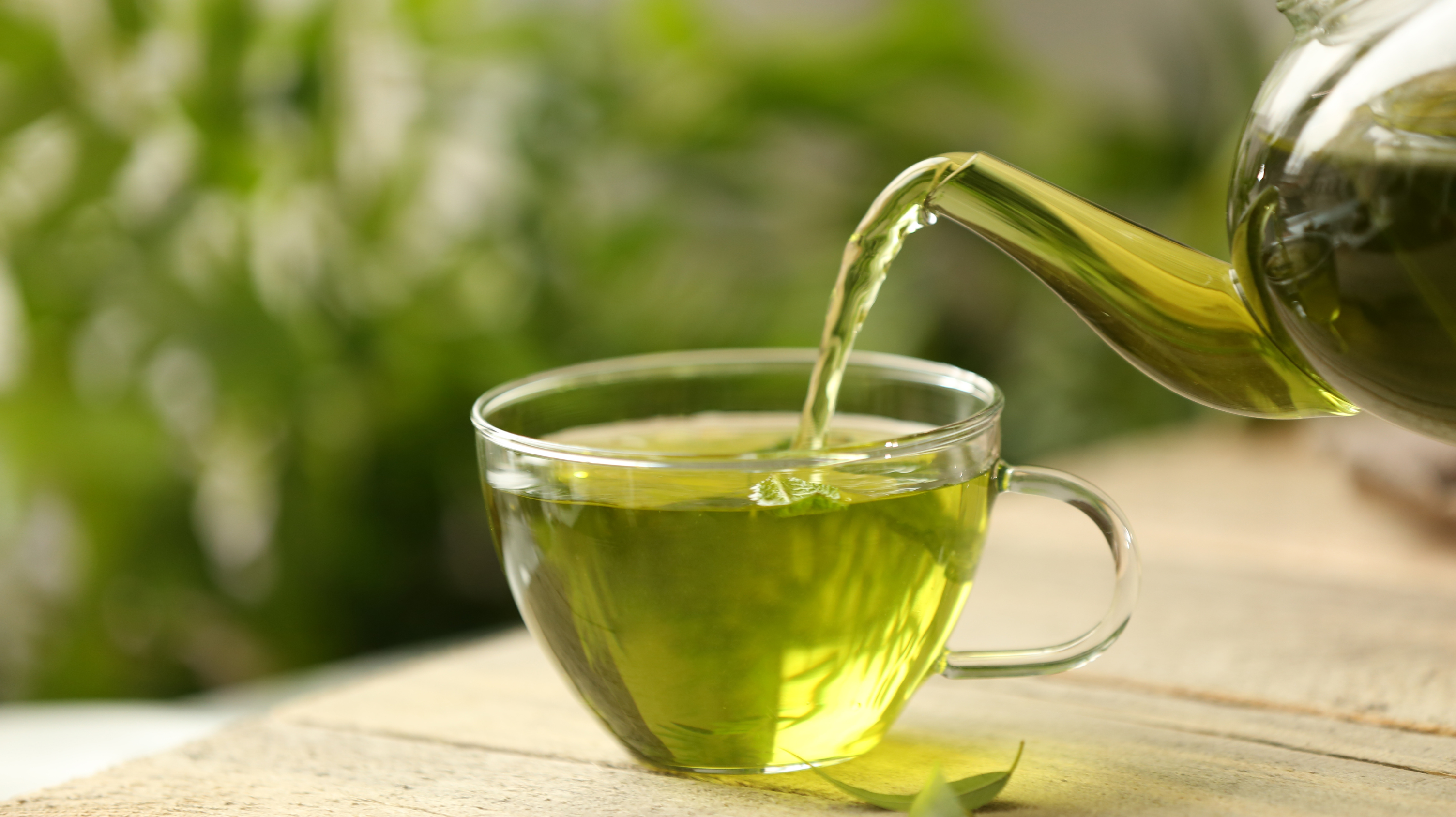
Make sure you’re wearing a well-fitted bra
Don’t underestimate how much of an impact your bra has on your breast health. One that is too tight or offers no support can trigger and contribute to breast soreness.
It’s well worth investing in a comfortable, well-fitting bra. You can get one measured properly in a range of shops.
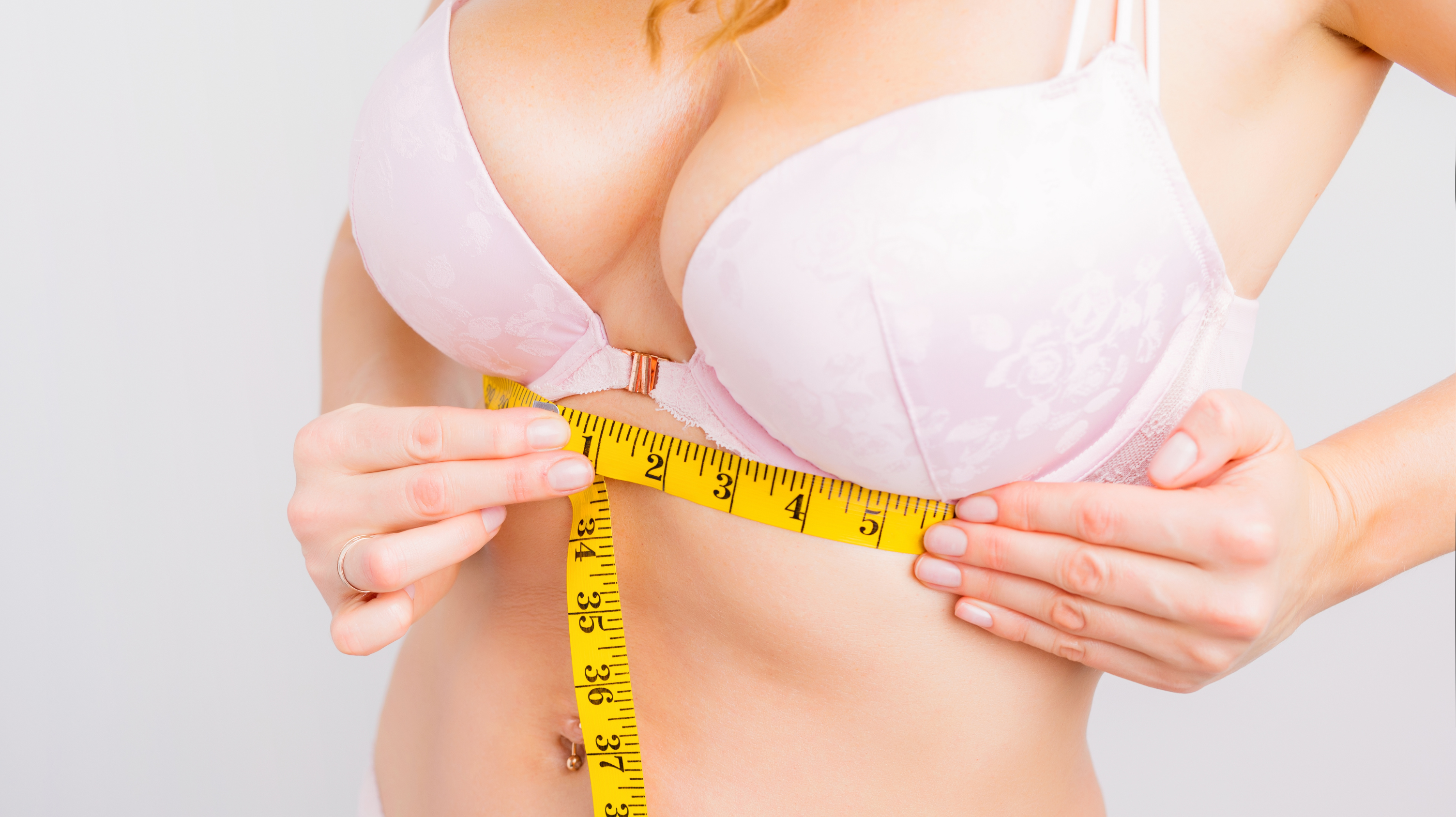
Work on weight control
Unfortunately, weight control in menopause is a tricky thing to achieve. But it’s not impossible.
Working on losing even a small amount of weight can revolutionise your symptoms. Your mental health and self-esteem, for one, will lift. Not to mention, weight gain can often make other menopause symptoms worse.
Sometimes, breast tenderness in menopause is directly due to weight gain. So, if you have gained weight, shifting that excess weight will help relieve the pressure on your chest and reduce soreness.

Breast tenderness in menopause – when to see a doctor
As a rule of thumb, if you notice anything “off” with your breast(s), you should always inform your doctor.
Even though breast tenderness in menopause and perimenopause is common, it’s safer to allow a medical professional to monitor you.
Most women panic when it comes to any differences in their breasts. Remember, most of the time, breast tenderness is a side effect of transitioning through perimenopause and into menopause. Breast soreness is very rarely signs of breast cancer.
However, if your breasts are sore, burning, throbbing, aching or you’ve found any lumps, speak to your doctor. On top of this, if you’ve noticed a change in their appearance or you’re experiencing any discharge from your nipples, book an appointment with your GP.
As always, it’s better to be safe than sorry.
Breast tenderness in menopause – in a nutshell
Breast tenderness in menopause and perimenopause is a common complaint and can feel different for every woman. From burning to stinging to a dull ache, the change in your hormone levels can have a direct impact on one (or both) of your breasts.
It’s really important to keep your doctor in the loop. When it comes to boobs, it’s always better to be safe rather than sorry.
In the meantime, quitting smoking and caffeine alongside losing weight will help relieve some of the tension on your chest. Plus, never underestimate how important it is that your bra is well-fitted!
(Here’s your excuse to go underwear shopping!)
Leave a Reply
- free ebook alert -
WHAT TO EXPECT WHEN YOU’RE
going through the menopause
Demystify your understanding of what’s happening to you. Arm yourself with solid, game-changing information to support you through this challenging phase of your life.
grab your copy now →
WHAT TO EXPECT WHEN YOU’RE
going through the menopause
Honestly, breast tenderness during menopause feels like your body’s pulling one last prank on you. For me, cutting back on caffeine and finally getting a bra that actually fits made a big difference. Also stumbled across SheMed’s blogs
which has some down-to-earth tips that actually make sense.